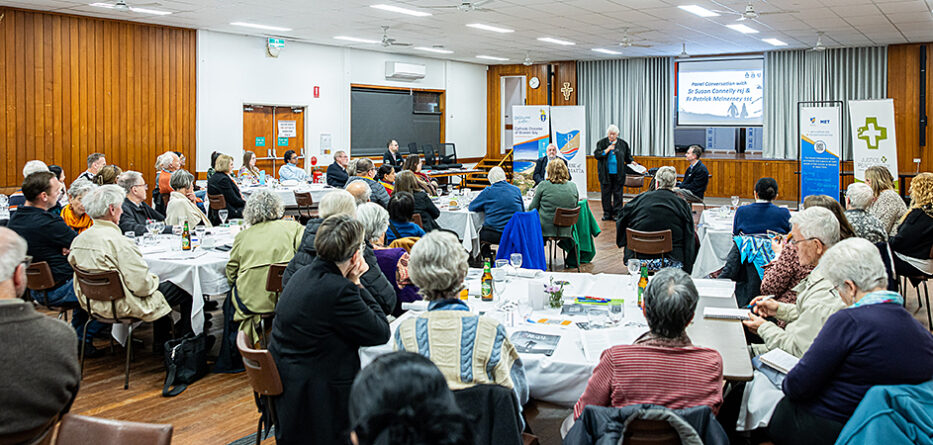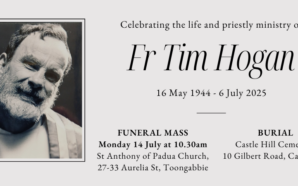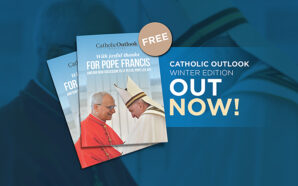Truth creates trust and trust creates peace. This central message from the Australian Catholic Bishops Conference’s 2025 Social Justice Statement formed the basis of an evening of truth-telling and trust-building for people of faith from across the Parramatta, Broken Bay and Sydney Catholic communities.
The annual Tri-Diocesan Social Justice Evening, hosted this year by the Peace Justice and Ecology team of the Diocese of Parramatta, was an opportunity to “reflect, be challenged by and respond to the Church in Australia’s call to promote a just society that upholds the dignity of all people, here and throughout the world,” explained Sebastian Salaske-Lentern, Parramatta’s Peace Justice and Ecology Coordinator.
Sara’s story
Participants on the evening were introduced to Sara, a young woman from Sudan who fled the violence of her north-east African home when conflict re-ignited after the founding of the South Sudanese state.
Sara was abroad completing a doctorate in civil engineering when violence overwhelmed her home and found that news of what was happening was unreliable.
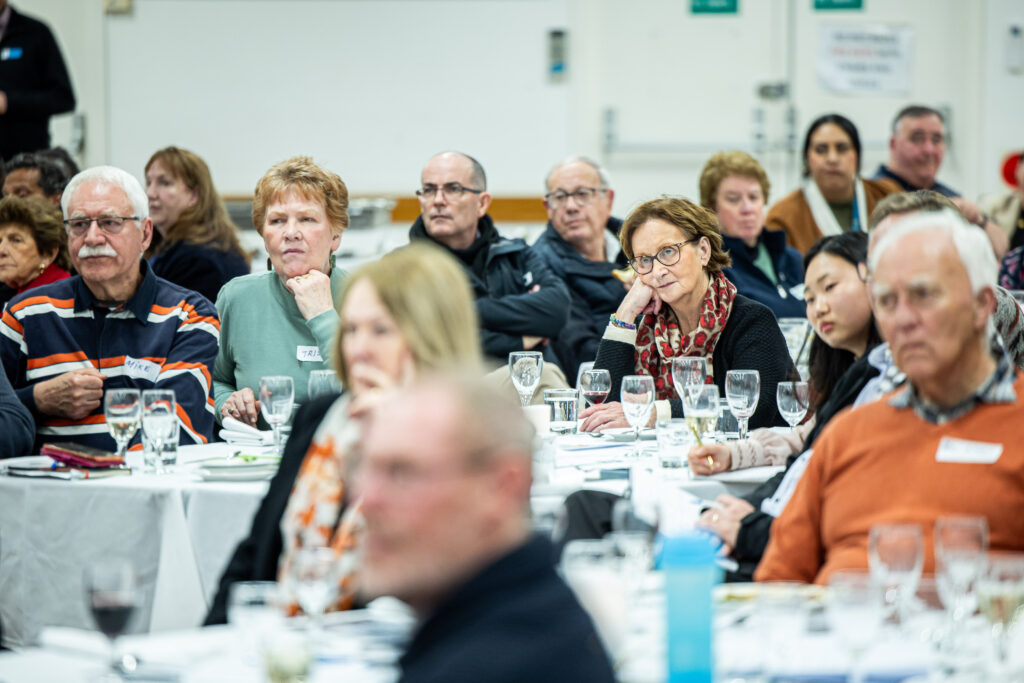
Participants are seen during the Tri-Diocesan Social Justice Statement reflection evening at St Monica’s Parish, North Parramatta, in June 2025. Image: Alphonsus Fok/Diocese of Parramatta
“The media was full of lies being told by those with something to gain,” Sara explained.
“At first, I could not contact my family, but when I did, I found out that the truth was not being told.”
Truth was not the only casualty of the conflict as Sara described it. “Sudan is a country with a rich culture and strong faith, (both Christian and Muslim)… this conflict has wounded souls, separated families and stolen futures.”
Fr Patrick McInerney, Director of the Columban Centre for Christian-Muslim Relations, described the situation in Sudan as being representative of the tendency of individuals and communities to demonise those that hold different views than we do.
“We become so consumed by our own ‘truth’ that we cannot see or understand others.”
Responding to the question is how we can be open to understanding others when different truths seem to conflict with one another Fr Patrick asserted that “truth cannot be in conflict with truth”.
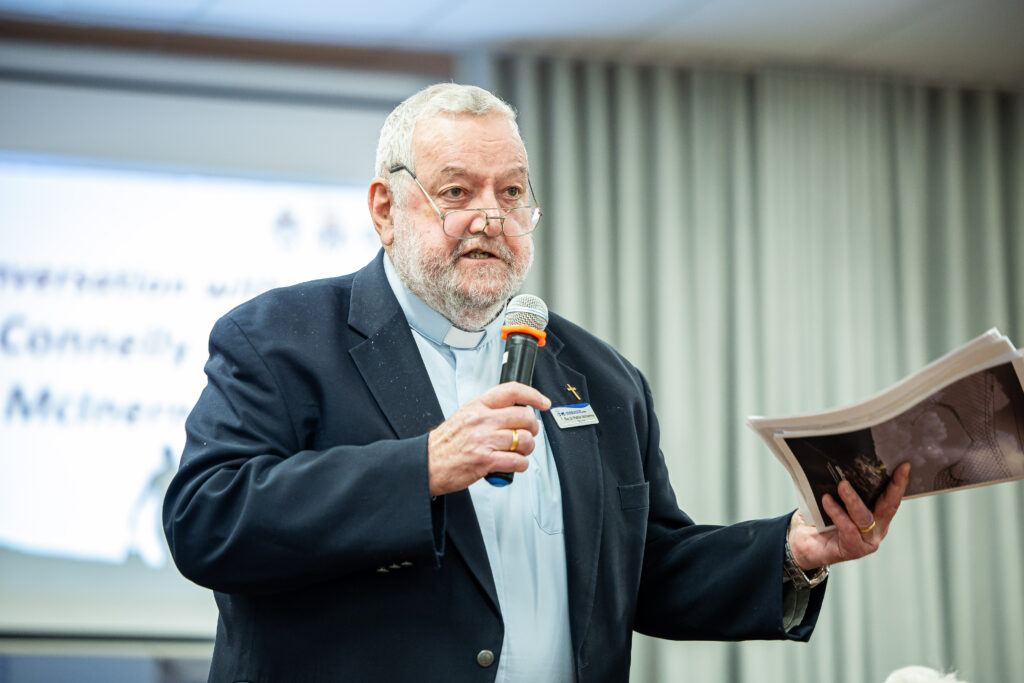
Fr Patrick McInerney, Director of the Columban Centre for Christian-Muslim Relations, speaks during the Tri-Diocesan Social Justice Statement reflection evening at St Monica’s Parish, North Parramatta, in June 2025. Image: Alphonsus Fok/Diocese of Parramatta
“There can be different perspectives, and if we can share and listen to one another’s perspective, we can develop a more holistic view, a fuller understanding of the other. Then we can find what other truths and values we have in common and we can build peace.”
Sr Susan Connelly rsj, Chair of the Australian Catholic Social Justice Council, cautioned participants that we cannot hesitate to call out false truth from those that seek to manipulate society.
“The Bishops in their statement refer to misinformation and disinformation,” she said. “But we have to be more direct and call disinformation what it is – lies.”
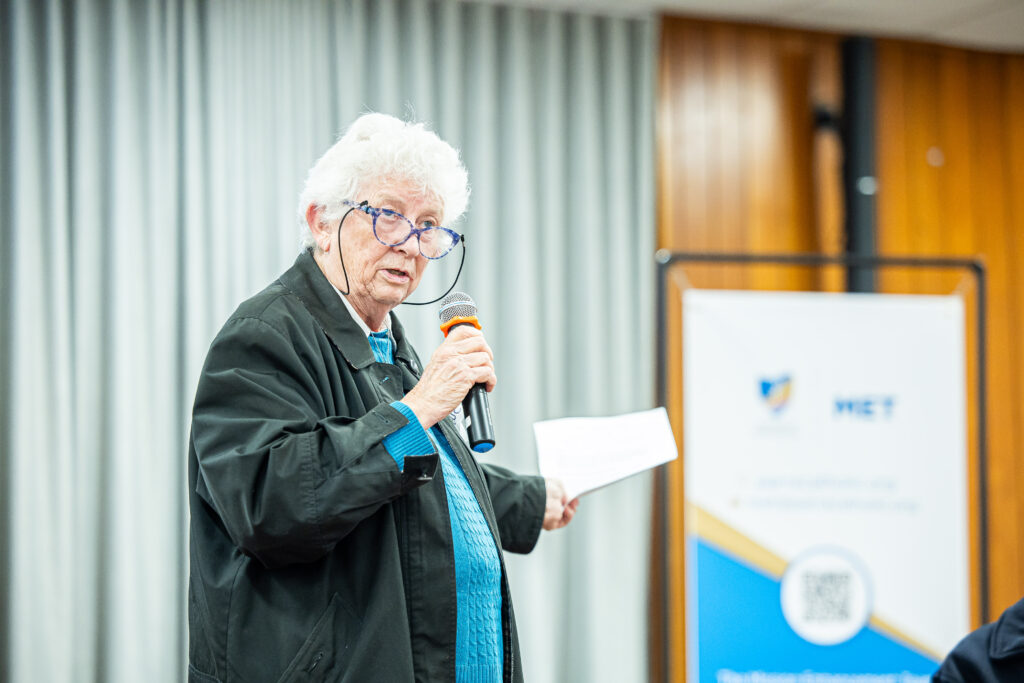
Sr Susan Connelly RSJ speaks during the Tri-Diocesan Social Justice Statement reflection evening at St Monica’s Parish, North Parramatta, in June 2025. Image: Alphonsus Fok/Diocese of Parramatta
Responding to a question about whether the internet has made identifying the truth more difficult in our modern world, Sr Susan was quick to identify what she sees as the real problem. “The internet itself is a wonderful gift to our world,” she said.
“The real problem is anonymity. That’s what creates conflict, the lack of relationship. When we know one another, we are more inclined to treat one another with dignity.”
Interfaith dialogue is crucial
Fr Patrick explained that getting to know those that are different from us is an imperative for Catholics. “Encountering other faiths, engaging in interfaith dialogue is to follow the teaching of the Church. When we open ourselves up to others, get to know them, and to love them as Christ does, then we can build peace.”
From the table talk that followed Sara, Sr Susan and Fr Patrick’s input, participants asked why the Church doesn’t do more to call out disinformation and lies – to engage with those that stand in the way of peace. Fr Peter Smith, a participant from Sydney, acknowledged that we are sometimes right to be disappointed with what is not said. But that doesn’t mean that we cannot speak out ourselves.
Fr Patrick agreed, encouraging everyone to start close to home. “Do what you can in your own community,” he urged participants. “Get to know your own neighbours.”
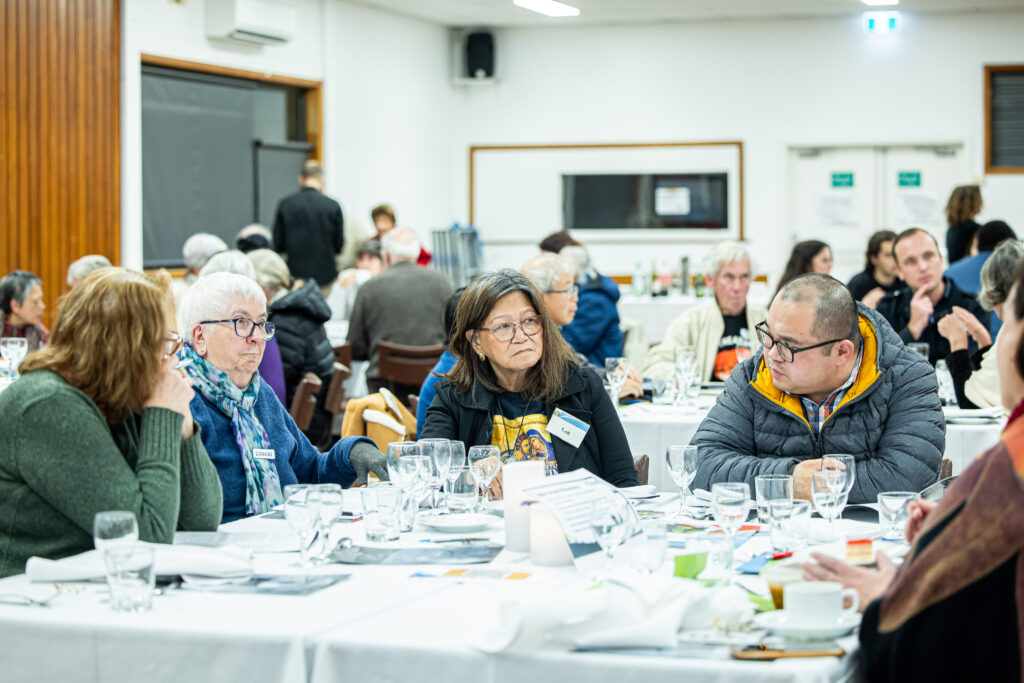
Participants in discussion during the Tri-Diocesan Social Justice Statement reflection evening at St Monica’s Parish, North Parramatta, in June 2025. Image: Alphonsus Fok/Diocese of Parramatta
“Lots of people doing small things, making a small difference, will add up to a big difference,” Sr Susan agreed. “And if you don’t think our leaders are doing enough or saying enough, including our bishops, let them know what you think.”
As Sara concluded her story, she urged the participants to remember, “Truly seeing one another reaches beyond race or religion. If we have faith in one another, peace is not just possible, it is a promise.”
Michael Reid is Head of the Mission Enhancement Team in the Diocese of Parramatta.
The Tri-Diocesan Social Justice Evening inspires local community action on social justice, with Community being a key priority in the Diocesan Pastoral Plan.
View the photos from the Tri-Diocesan Social Justice Evening on Flickr.




